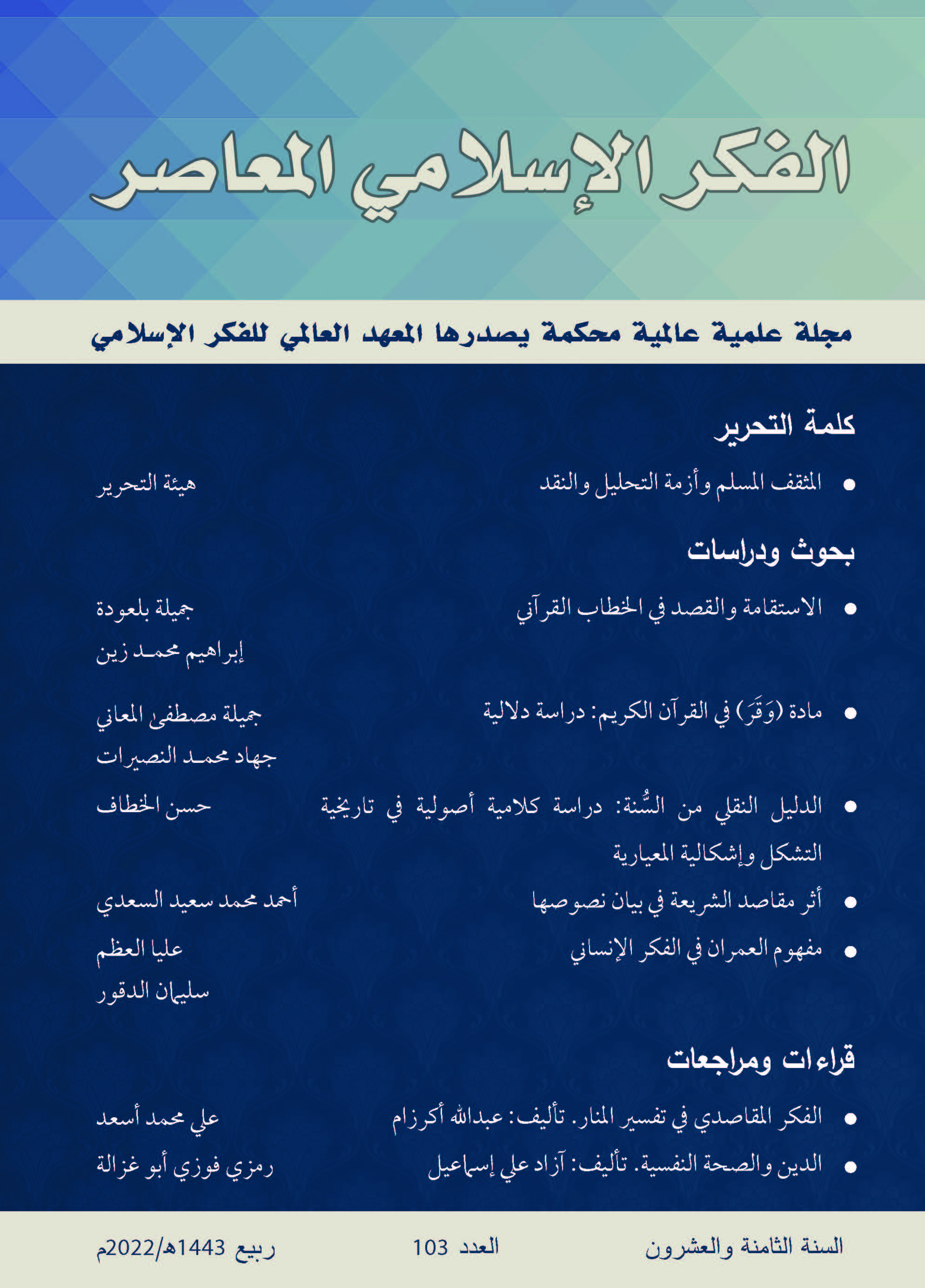Abstract
This study aims to examine the implications of the notion of ʿumrān (civilizational development—in terms of structural, cultural, social, and political progress) in Islamic thought and its equivalent in Western thought. It traces the notion of ʿumrān in the classical and the modern eras of Islam as well as the interaction of Western thought with the notion of civilizational development in general, and Khaldunian ʿumrān in particular, investigating analogical models in Western thought. In order to achieve its objective, the study uses the inductive method to track the history of the notion of ʿumrān or what resembles it, as well as the analytical method to deduce and link the various data. The study finds that the implications of the notion of ʿumrān in classical Islamic thought contain specific material and moral references that lead to a comprehensive meaning denoting the characteristics of human society. While the connotations of the notion of ʿumrān vary in the modern era, they tend to focus on the meaning of individual and collective reform leading to the desired renaissance. The study also finds that Western thought engagement with the notion of ʿumrān is a demonstration of humans coming together, formulating theories on civilization and societies.





